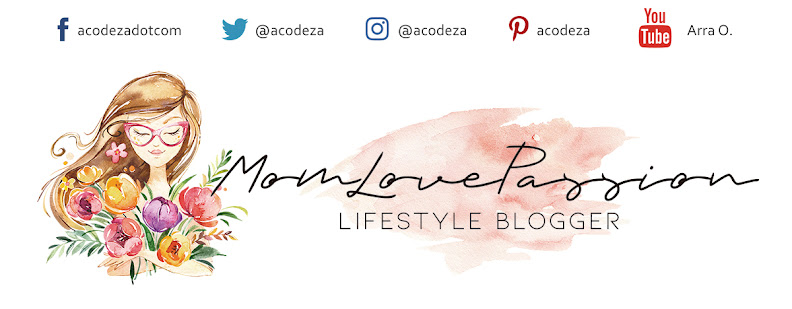Age is but a number, so they say. Getting older is something we all have to get our head around, but scratching off another birthday doesn’t necessarily have to have a negative impact on your health or wellbeing. We tend to think of aging as a limiting process. However, there’s a lot to be said for embracing the notion that ‘you’re only as old as you feel.’ If you’re keen to stay fit and healthy through the ages, here are some golden rules to keep you young. Whether you’re 25, 45 or 65, there’s no reason you can’t feel great.
Embrace exercise
Exercise is one of the best tonics when it comes to boosting health, preventing illness and making you feel incredible. We often focus on exercise as a means of burning fat and trimming down, but it’s so much more than a weight loss tool. While exercise can help you shift pounds, which is hugely beneficial if you are in the overweight or obese category, this is far from the only reward it brings. If you’re not an active person, moving more will benefit you no matter your age.
Exercise is essential for good health, and if you make an effort to be more active, you’ll notice a difference in your body and your mindset after just a few sessions. Exercise is known to improve circulation, and it also increases strength, endurance, and stamina. If you exercise on a regular basis, your heart muscle will become stronger, your body fat percentage will fall, and your bones will also become more robust. Studies show that people who train on a regular basis and those with an active lifestyle have a lower risk of chronic illnesses and potentially life-threatening conditions, such as heart disease, type 2 diabetes, and obesity. Many of us assume that being overweight is the main issue when it comes to diseases like diabetes and risk factors like high blood pressure, but research suggests that inactivity can be even more dangerous.
If you’ve never exercised before, now is the time to start moving your body more. Tailor your program to suit your age and your general health status, and build your fitness gradually. If you need advice, you can ask your doctor or a personal trainer for ideas that are suitable for you. If you’ve got an old injury, for example, low-impact sports like swimming may be a good option for you. If you’re very unfit, start walking and cycling short distances and try and go further each time. As you get stronger and fitter, you can start jogging, spin, rowing and doing cardio classes.
Your age can impact your fitness levels, but there’s absolutely no reason why you can’t be active in old age if your body allows you to keep moving. In fact, there are few things that are more beneficial for your health as you get older. A recent study conducted in the UK showed that people who exercised a lot in their 60’s, 70’s and 80’s had much better immunity than younger people who were less active. The study revealed that some people in their 80’s had the immune systems of 20-year olds as a result of cycling long distances on a weekly basis. You don’t have to commit to spending hours in the gym or running a marathon every week, but it’s always useful to be aware of the many advantages of keeping fit, no matter how old you are. Even if you’re only 20, it makes sense to start taking steps to protect your health in later life.
As well as contributing to physical health, exercise is also hugely beneficial for mental health. Exercise is proven to lift your mood, reduce stress and facilitate sleep, and it can be a very useful self-help technique for those who suffer from mild anxiety, stress or depression. When you’re on the move, your body releases endorphins and your serotonin levels rise, which makes you feel good. Psychological wellbeing is often overlooked, but it should be a priority for everyone.
Don’t be afraid of the doctor
If you’re ill, what do you do? Do you call and make an appointment at the clinic right away or do you plod on in the hope that things will get better? Often, if you have a minor ailment, there’s no need to seek medical advice, but if you avoid the doctor on a regular basis, this can be problematic. Many of us are anxious about going to medical and dental appointments, but it’s really important to stay on top of basic checks and also to ask for advice if you suspect that something may be wrong. It doesn’t matter how old you are. If you think there’s a problem or you’re worried about your symptoms, don’t bury your head in the sand and hope for the best. We tend to associate poor health with getting older, but the reality is that illness can strike at any time. If you’ve got a cold and you’re tired, you don’t need emergency help, but if you’ve got unexplained pains, you’ve lost weight without trying, you’re lethargic, or you feel down or low all the time, it’s important to seek help. Your symptoms may be nothing to worry about, but it’s always best to err on the side of caution.
If you haven’t been to the dentist for as long as you can remember, it’s been years since you had an eye test or you’ve got no idea if your blood pressure is normal or not, now is the time to get on top of those routine checks. If you look after yourself now, you’ll reap the rewards later in life. It doesn’t matter whether you’re 30 or 60, spending a few minutes at the clinic every now and again could make all the difference to your health.
Get your head around insurance
Surveys suggest that cost is the most common barrier to seeking health advice and treatment, and this is why it’s so important to get your head around health insurance. It may be a struggle to get by each month, but don’t put your health at the bottom of the list. Your health should be a priority. Shop around for insurance policies, and learn about plans and schemes that could benefit you. If you’re approaching retirement, take a look at GoMedigap plans, make sure you understand the ins and outs of Medicare and choose a supplement that is suitable for you. If retirement is way off, compare health policies from different providers and make sure you’re aware of any benefits you could enjoy through employment schemes. If you have children or a partner, it’s worth reading up on family policies and getting some quotes. If you have insurance, you can access the services you need without worrying about the cost, which will benefit you for many years to come. You may assume that you’re immune to health problems if you’re young and full of energy, but sadly, none of us know what’s around the corner. It is estimated that over 11 percent of American adults don’t have health insurance.
Rest up
How many hours of sleep do you get on average? The CDC claims that 1 in 3 Americans doesn’t get enough sleep. Ideally, we should rest for around 6-8 hours per night, every night. If you fall short of this mark on a regular basis, you could be putting your health at risk. Many of us have nights where we can’t seem to get comfortable and we toss and turn for hours before the alarm goes off. If you have a bad night from time to time, this is usually nothing to worry about, and you can soldier on, albeit with bags under your eyes and an eager eye on the clock. The trouble is that your body can’t cope with exhaustion over a prolonged period of time. Sleep is essential for enabling your body to recover and undergo important repairs. If you don’t get enough sleep, your immunity may suffer, you may be stressed and irritable, and you might also be at risk of chronic health issues, including an elevated risk of heart disease.
If your sleep routine is up to the spout or you suffer from insomnia, try and rectify the problem. If you don’t notice positive changes by adjusting your bedtime regime or your sleeping environment, doing more exercise or avoiding caffeine late at night, it’s wise to see your doctor.
Be happy
Happiness and health go hand in hand, no matter how old you are. Pay attention to your body, but don’t forget about your mind. Be sociable, spend time with people you make you laugh, keep your brain busy, and don’t waste time worrying about things you can’t change. Do little things every day that make you smile and try and avoid stress triggers as best you can.
It doesn’t matter how old you are, your health should always be your priority. Even if you’re only in your 20’s or 30’s now, it’s never too early to shield yourself from illnesses and change your lifestyle to benefit you in years to come. Hopefully, these golden rules will help to keep you forever young.








No comments:
Post a Comment